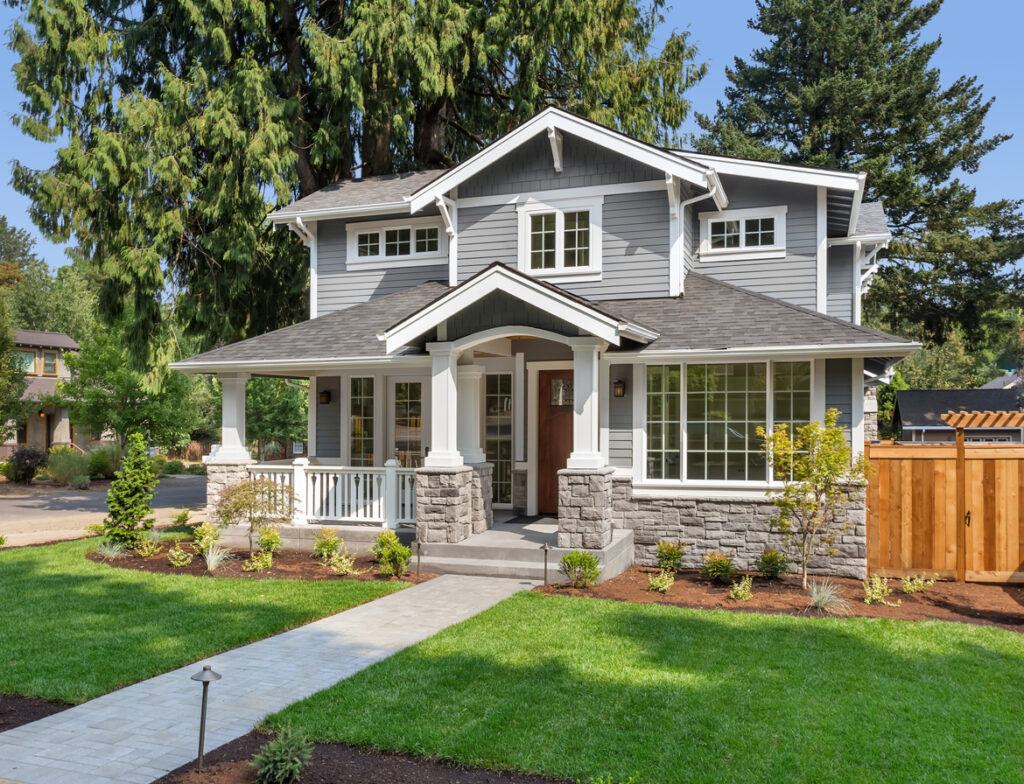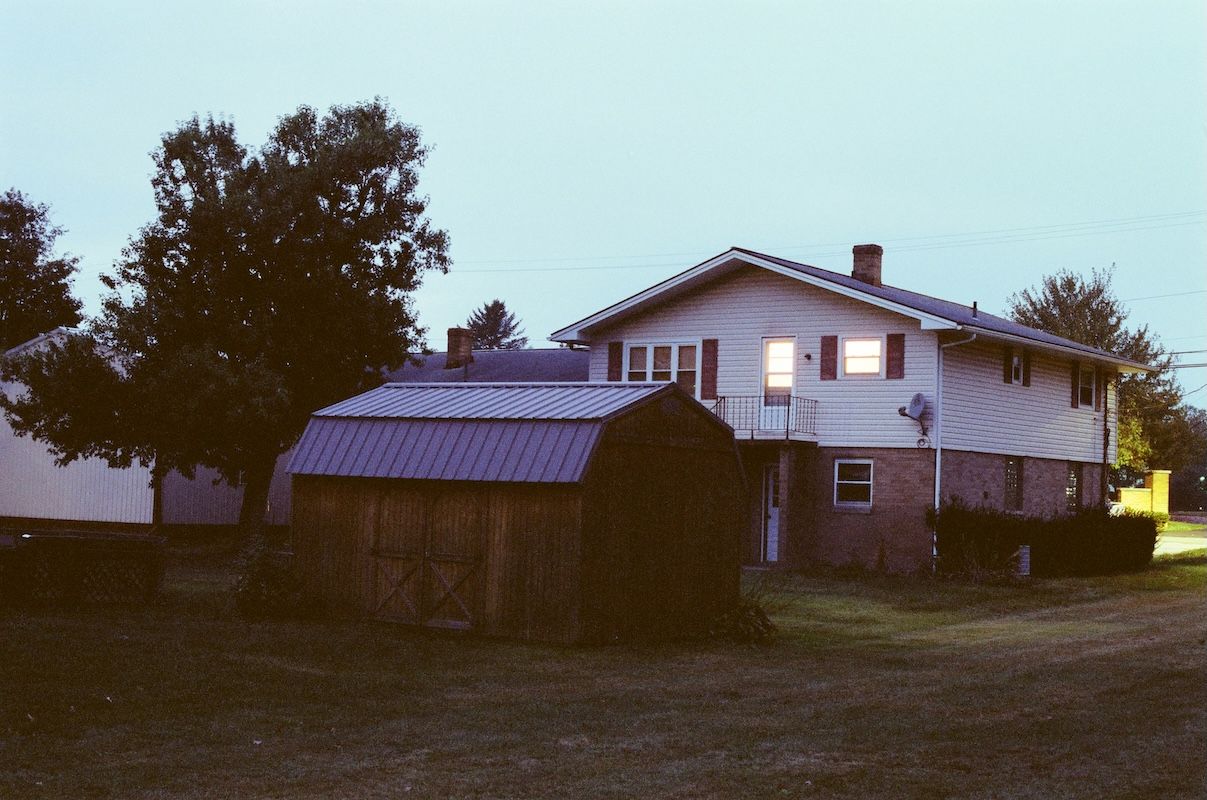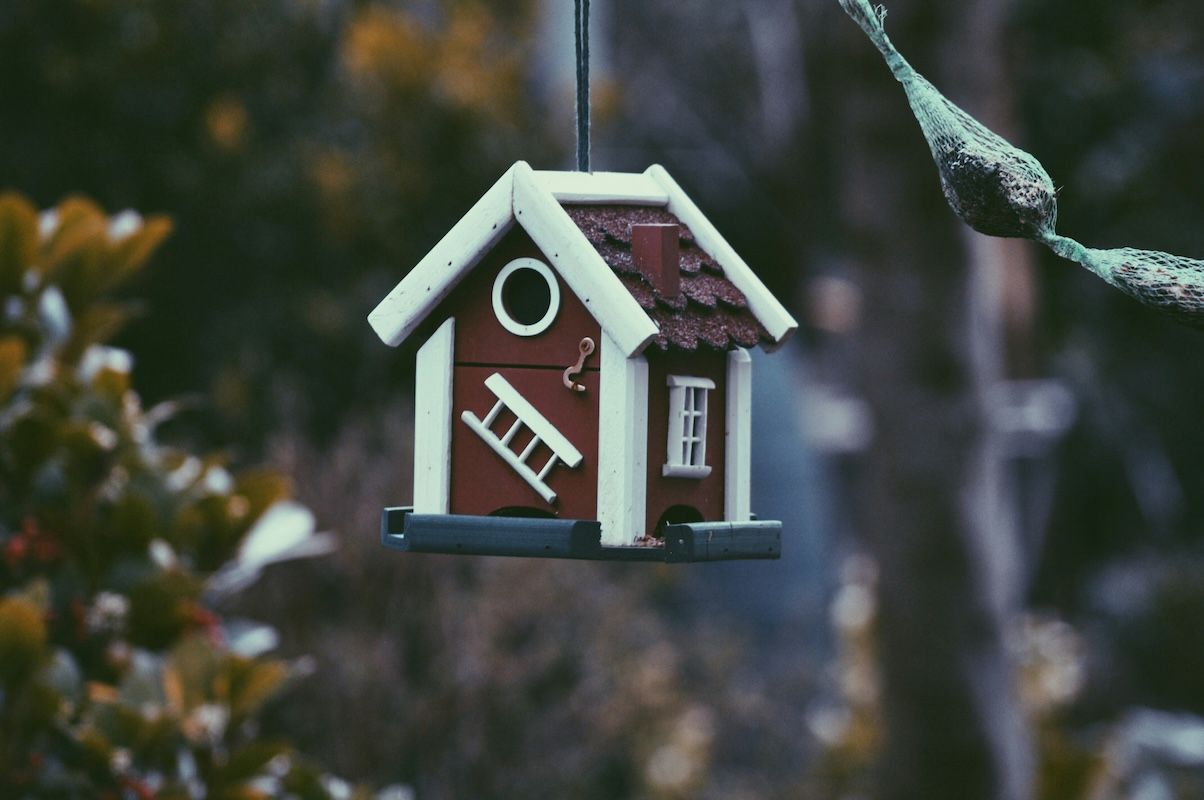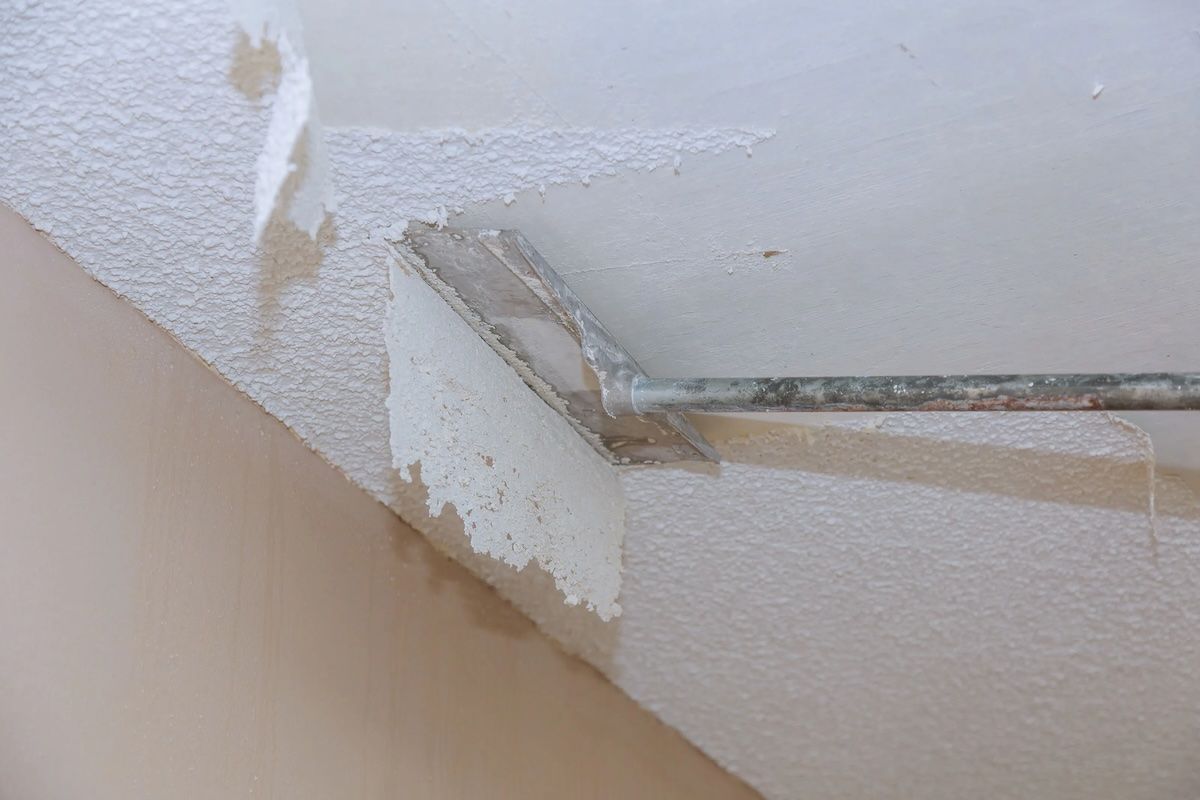- Understanding Home Value
- Finished Basements
- Renovated Kitchens
- Upgrade with Fresh Paint
- Adding an Additional Living Space
- New Bathrooms and Bathroom Upgrades
- Enhance Your Home's Curb Appeal
- New Flooring
- Upgraded Appliances
- Roof Replacement
- Adding Garage Storage
- Refreshing Landscaping
- Potential Depreciating Factors
- Maximize Your Home's Value with FastExpert
How to Increase Home Value by $50-100K, According to Real Estate Experts

Whether you’re preparing a home for sale or just looking to improve home equity, there are a few home improvements that you can make to increase your return on investment. However, there’s no one-size-fits-all and we often find individuals investing heavily in upgrades that unfortunately do not align with the preferences and expectations of the local market, thereby not adding the anticipated value.
So, for homeowners asking, “how to increase home value by 50,000 to 100,000 dollars?” the answer is simple – think of home improvements from a strategic mindset and always refer to real estate professionals when in doubt.
Whether you’re considering selling soon or want to smarten up your space, we have tips to help you avoid costly mistakes and make choices that buyers will love. Let’s dive in!
At Fastexpert, we connect homeowners with real estate experts who can provide personalized advice on home improvements that maximize your home’s value. Get a free consultation today to learn how to add $50-100K to your home.
Understanding Home Value
Determining a home’s value is an important part of any real estate transaction, whether buying, selling, or obtaining a mortgage or cash-out refinance. However, assessing value can be complex as it depends on multiple interrelated factors. Here are some of the key factors that can affect your home value.
Location, Location, Location
As the saying goes, one of the biggest influences on value is location. Is the home close to shops, schools, restaurants, and other amenities? Proximity to desirable neighborhood features will increase the home value and what buyers are willing to pay.
Land size/property size
The size of the property impacts its value. Both the lot size and the square footage of the home are important. Typically, a larger space has a higher value because the value is often based on a rate per square foot. Usable space inside the home has a more significant impact on value than non-living areas like garages, unfinished basements, or attics when determining a property’s worth.
Home’s Age and Condition
The age of a home also affects its value. Generally, newer properties are more valuable because they require fewer updates or repairs. Older properties may need significant home improvements or maintenance work, therefore lowering their value. Well-maintained properties tend to have higher appraisals than those needing cosmetic or structural improvements.
Updates, Upgrades, and Maintenance
Maintaining a property and making home improvements help increase the resale value of your home. Minor remodeling to major renovations in the kitchen and bathroom are particularly beneficial. Replacing outdated features through strategic projects significantly boosts its worth and resale value.
Economic Factors
The overall economy greatly impacts real estate values. In strong economies with low unemployment and high consumer spending, demand rises. Understanding economic cycles and property sensitivities helps homebuyers gauge trends. The key factors influencing real estate are intertwined with the broader economy.
Supply and Demand Dynamics
Constrained supply amid high demand lifts prices as buyers compete. But oversupply causes declining values. Natural economic factors and policies influence supply over time.
Interest Rates
Rate changes alter housing affordability and demand through mortgage rates. Lower rates stimulate demand by enabling larger loans and making it easier for buyers to qualify.
Government Policies
Tax laws, zoning, and subsidies shape the investment landscape. Policies like homebuyer credits can temporarily inflate demand signals.
>>DISCOVER: How to Add a Room to a House Without Breaking the Bank
Finished Basements
While some homeowners overlook unfinished lower levels, others view basements as untapped potential. Finishing a basement is a major renovation, but the space can be transformed into a major asset to get a higher asking price.
Why do finished basements add value to a home? Well, because:
- Extra square footage.
Finishing a basement effectively increases the total livable space in a home. Buyers appreciate homes with more rooms. - Transforming unused space into useful rooms.
Owners can customize their needs by configuring a basement into functional extra spaces such as a bathroom, bedroom, or extra living space. - Improves buyer appeal.
With the work complete, buyers simply see it as a move-in ready living area rather than another renovation project. - It can be turned into an accessory dwelling for additional income potential.
Converting a basement into an accessory dwelling unit opens up rental income opportunities, whether for long-term tenants or short-term vacation rentals.
Unfinished basement areas don’t technically count as “livable square footage” in MLS listings, but they can add to a home’s value. On average, across the U.S., finishing a basement provides a 70-75% return on investment at resale.
So, if you spend $10,000 on basement improvements, you can expect to recoup around $7,000 when you sell.
Making strategic finishes to transform drab, unfinished basements into livable spaces that impress buyers can deliver significant payoffs to home value.
Renovated Kitchens
For buyers and sellers alike, the kitchen is a focal point influencing real estate decisions. Real estate agents report average returns of 70-80% return on renovated kitchens. But, ROI varies significantly by project scope and regional markets.
Strategic updates and DIY projects can give your kitchen a fresh, on-trend style that appeals to buyers without breaking the bank. Here are some tips to increase home value through kitchen renovations:
- Evaluate existing space functionality impartially before renovating to determine the necessary scope of work.
- Prioritize cohesive, affordable solutions like matching appliance styles over standout brand names.
- Refurbish or paint cabinets instead of a full replacement.
- Refresh hardware, sinks, and fixtures through inexpensive DIY-friendly solutions.
- Enhance lighting through cost-saving techniques like underlighting strip kits or LED upgrades.
- Install backsplashes.
- Add granite countertops.
- Update flooring with budget-friendly, on-trend tile or vinyl.
Upgrade with Fresh Paint
Giving your home a fresh coat of paint can be one of the easiest and most effective ways to upgrade your space and potentially add a few thousand dollars to the value of your home. Fresh paint can:
- Make your home look cleaner and brighter.
- Create the illusion of more room and open up a space.
- Make dated exteriors and interiors look fresh and new.
- Set the tone and mood in different parts of your home.
It may be hard to believe, but something as simple as repainting a property can be a low cost home improvement with some of the best return on investment. A fresh coat of interior paint is reported to have a 107% ROI.
Interior Paint
Interior paint colors play a pivotal role in influencing a home’s resale value. While personal color preferences are essential for homeowners, those looking to sell or thinking about future home value should consider market trends for maximum returns.
Here are some tips to consider when choosing your paint colors.
- Neutral is Key
Neutral colors appeal to a wider audience. They provide a blank canvas that allows future buyers to envision their own decor and personal touches. They also tend to be “timeless,” requiring minimal updating. - Stay Updated with Trends
According to the National Association of Realtors (NAR), some of the hottest paint colors for 2022 include soft earth tones, muted pastels, and nature-inspired hues. - Consider the Neighborhood
While it’s essential to choose a color you love, it’s equally important to ensure that your home doesn’t stick out. A radically different color might negatively impact a buyer’s perception.
Choosing a neutral color scheme doesn’t mean you’re forced to stick with whites and creams. It’s important to know how to choose the right colors for your home. Currently, light blues and gray-blues are currently on trend for kitchens, with homes featuring such hues fetching over $1,800 more than other colors.
Contrary to traditional beliefs, white bathrooms can decrease a home’s value by around $4,035. Instead, light blue bathrooms, ranging from baby blue to lavender blue, can increase the sale price by an average of $5,440.
For living rooms, earthy neutrals like beige, taupe, and oatmeal are preferred, offering both spaciousness and warmth. Dining rooms in slate blue can boost offers by $2,000, while brick reds and terra cotta may decrease value.
For a cohesive feel, consider painting adjoining kitchens and dining rooms the same trending color.
Exterior Paint
Curb appeal has a huge impact on resale value. The right color choice can significantly influence buyer attraction, especially in listing photos. Popular exterior paint colors vary by location, neighborhood, and home style.
If you’re picking a new color for your home’s exterior, it’s critical to consider the home’s style and the properties that surround it. Remember, you’re not limited to one color. Contrasting shades on features like shutters, trim, and the front door can further enhance a home’s appeal. For instance, doors painted in deep tones like dark gray, black, or navy blue can help add visual depth. Perhaps adding vinyl siding or a stone veneer is a better solution?
While exterior updates don’t have the same return as interior paint, having an average ROI of 55%, it’s a major contributor to a property’s overall curb appeal.
Adding an Additional Living Space
Adding a living space through home additions can potentially boost a home’s value by increasing its usable square footage. As homes evolve to cater to modern lifestyles, certain additions stand out for their potential to attract buyers and offer a higher return on investment.
Home Improvements that Add Value
Some additions are more valuable than others. Adding a bedroom suite increases a home’s number of bedrooms, which is always in high demand. Alternatively, adding a home office or second bathroom upgrades the floor plan to meet modern needs. These improvements boost function over simple living space expansions.
When considering what space to add to your property, consider what would add the most value. Are you short on bathrooms? Do you need a second living room? There’s no one-size-fits-all solution to adding a living space to a property. Instead, it depends on what the property is lacking and how the home improvements will add to the value of your home. Additional living spaces that provide the best ROI are does that are in demand by the broadest spectrum of future buyers.
Functional, in-demand additions provide the best opportunity to recoup costs in future home equity.
New Bathrooms and Bathroom Upgrades
Bathrooms are an important part of any home. A dated bathroom will deter future buyers and impact home value. Making upgrades or adding a new bathroom can boost your property’s value and appeal.
- Modern Upgrades
Today’s buyers want all the bells and whistles in their bathrooms. Things like rainfall showerheads, heated floors, and dimmable lighting take a bath to the next level. - Maximized Space
If your bathroom feels cramped, reconfiguring the layout or extending the size provides more function. Storage solutions such as vanity cabinets also make a big difference. - Green Features
Water-saving toilets and faucets appeal to eco-friendly buyers and cut down on utility costs. Low-flow fixtures show you’re keeping up with current trends.
Modern fixtures, optimized space, and eco-friendly additions will help you pull in the top dollar when selling.
What is the ROI of a Bathroom Uprade?
Bathrooms are one of the first home features that buyers look at when assessing a property. Data shows that a bathroom update will have an average 67% ROI. If you’re looking to add the most value to your home, completing a bathroom upgrade that modernizes a space and makes it more functional is an excellent option.
Enhance Your Home’s Curb Appeal
The exterior of a home makes a big first impression on buyers; many buyers will decide whether or not they are interested in a property before even stepping inside, so improving the exterior appearance is crucial to adding home value.
Upgrades that Enhance Your Home’s Curb Appeal
Small exterior enhancements can boost a property’s aesthetic and value. Home improvements that improve value can include:
- Landscape Layout
Landscaping should be welcoming, well-kept, and easy to maintain. Consider the composition of your property and select plants that add life and color to your home’s exterior. - Front Door Updates
A fresh coat of paint or modern door style elevates the entryway. - Outdoor Lighting
Thoughtfully designed outdoor lighting enhances both functionality and appeal. Add pathway and porch lamps to improve safety by illuminating walks and entrances at night. Strategic landscape lighting, such as low-voltage fixtures outlining plant beds, helps define spaces and serves as visual accents after dusk. - Driveways and Walkways
Buyers will notice aged and cracked driveways. Repair cracks by resurfacing or add a more stylized option such as cobblestone. - Replace the Garage Doors
A garage door has a large surface area and can hugely impact a home’s design. If your garage door is looking dated, consider investing in a new one that matches your home’s style.
Exterior enhancements, along with interior projects, offer lasting property value. While ROI varies, curbside upgrades generally prove worthwhile ventures.
New Flooring
Refreshing your floors is a smart investment that can boost your home’s value, according to experts. For example, installing hardwood floors can boost a home’s value by 3-5%. This meaningful bump in home equity makes hardwood floors a smart upgrade for all homeowners.
However, if you’re looking to have the best impact on home value, you need to choose the right the right materials. Here are some tips for choosing flooring that appears to future buyers:
- Opt for hardwood flooring in high-traffic areas like entryways and living rooms.
- Choose modern tiles for kitchens and bathrooms since it’s water-resistant and easy to clean. Make sure your tile selection is cohesive throughout your home.
- Carpet works well in bedrooms, but buyers generally prefer hard surfaces elsewhere. Carpets that appear dated will lower home value. If you’re replacing carpet in your home, choose the same carpet for all carpeted rooms.
- Luxury vinyl planks are an excellent, durable option that gives the look of hardwood at a lower cost.
- Keep colors neutral so future owners can decorate as they please.
Upgraded Appliances
When preparing a home for sale, it can be tempting to upgrade appliances to high-end brands that impress potential buyers. However, top-of-the-line ovens, stoves, and other gadgets can be very expensive and typically don’t have a high ROI. Be careful about overspending on appliances; however, steer clear of appliances that appear cheap.
More reasonable upgrades to consider are wine coolers for wine lovers and double convection ovens for those who frequently host large dinners.
Consider Your Needs, Not Wants
We all get carried away by flashy features and advanced technology. Who wouldn’t want a fridge that can help you draft your shopping list or an oven that can preheat itself while you’re on the way home? But before diving into the allure of the latest and greatest, ask yourself: What are my actual needs?
Identify your lifestyle requirements and tailor your appliance choices to them. For instance, a large, double-door fridge might not be the best fit for a single person living in a studio apartment. Alternatively, a small, high-efficiency washer may not be sufficient for a family of five.
Examine Reliability and Warranty
An appliance is only as good as its lifespan and the after-sales service that comes with it. Research reviews and customer feedback on the brand’s reliability and performance over time. Also, a good warranty is often indicative of the manufacturer’s confidence in their product. Always read the fine print and know what’s covered and what’s not.
Increasing Energy Efficiency
Appliances are a long-term commitment, not just in terms of space but also energy consumption. An energy-efficient appliance might have a higher upfront cost, but it will pay off in the long run through lower electricity bills. Look for Energy Star ratings or other certifications that assure you of an appliance’s energy efficiency.
Energy-efficient appliances can include:
- HVAC systems.
- Refrigerators.
- Induction stoves.
- Refrigerators.
- Tankless water heaters.
Strategic efficiency projects generate dual benefits – immediate savings and elevated resale appeal. With smart choices, you can upgrade appliances and add appeal without breaking the bank.
Resale Value of New Appliances
The resale value of an appliance can be significant. Some brands and types of appliances retain their value better than others, but unless you own a luxury property, there’s no need to overspend. Appliances in neutral colors or timeless styles, such as stainless steel, will generally have the best impact on home resale value.
Roof Replacement
Aged or damaged roofs are a major concern for buyers and will often cause them to walk away from a deal. Replacing an aging or damaged roof protects more than just the interior, but the property’s structure.
A fresh roof improves curb appeal by presenting the home’s exterior in excellent shape. The presence of leaks will put off potential buyers. Additionally, it also provides peace of mind against costly repairs down the road.
A new roof is a significant investment, so you must safeguard it through warranties and certifications. Most reputable roofing contractors will offer warranties that cover both materials and workmanship. Make sure to read the fine print and understand the terms and conditions, including what could potentially void your warranty.
While the ROI new roof is usually around 60%, it is an important home improvement. Investing in your roof signals a well-cared-for home and addresses buyer concerns before they arise. Furthermore, it adds appeal and longevity.
Adding Garage Storage
The garage is an often overlooked area, but one that makes an impression on buyers. A disorganized garage full of clutter sends a negative message. Install affordable storage solutions like shelving, cabinets, and workbenches so homeowners have more usable space more efficiently.
The ROI of a garage renovation can be between 64-81%.
Refreshing Landscaping
As mentioned, curb appeal is heavily influenced by landscaping. A well-designed garden or front yard doesn’t just enhance the visual appeal; it can significantly increase the value of your property. However, landscaping isn’t just about planting a few flowers and calling it a day. Here’s how to refresh your outdoor spaces to make them truly transformative.
Consider the entire property’s grounds when refreshing landscaping. Small investments like pruning shrubs, weeding flowerbeds, and maintaining a lush green lawn create visual appeal that draws buyers in to explore more. Alternatively, larger projects such as adding a water feature, outdoor fireplace, or entertaining space can add considerable home value.
Potential Depreciating Factors
When renovating a home for resale, there are some unique design elements and modifications that may seem appealing to homeowners but could potentially reduce a property’s resale value. While adding personal flair is understandable, catering to general consumer preferences helps ensure renovated homes sell for optimal prices.
Weird and Wild Designs
Unique designs might be a great way to personalize a space, but when it comes to adding value to a property, they can actually be a deterrent. Think of those paint colors or super niche themes that stand out. Not everyone shares your taste. Going overboard with quirky design choices might actually turn off buyers.
Landscaping Overkill
Beautiful gardens and yards can be a plus, but going all-out with extravagant landscaping that needs constant attention might not be everyone’s cup of tea. Not everyone has the time or money for high-maintenance greenery.
Goodbye, Bedroom
Converting a bedroom into something else, like a gym or a walk-in closet, might sound cool, but it could backfire, especially if you’re home is already short on bedrooms. Families or buyers who want plenty of bedrooms might look the other way, making it harder to sell your property.
Poor Renovation Quality
If you try to cut corners with cheap materials or do renovations that look like they’ve been done by an amateur, you could end up with a home that people think is poorly taken care of. That’s not going to help your home’s value.
Over Updating
It’s easy to get carried away with renovations and upgrades.
One of the main pitfalls of over-updating is overcapitalization, where the amount spent on improvements exceeds the added value to the property. You might love that imported Italian marble in your bathroom, but will future buyers be willing to pay extra for it? Not every renovation translates into an equivalent increase in property value.
Your home might end up being way pricier than others around, making it a tough sell when buyers have cheaper options.
Swimming Pools
While some buyers see swimming pools as a desirable feature, they can also be a deterrent due to maintenance costs, safety concerns (especially for families with young children), and limited usability in certain climates.
When adding a pool to your property, make sure you consider the area you live in and what buyers are looking for. Pools added to homes in warm climates will have a better impact on the home’s overall value than those in cold climates.
Renovations that Aren’t Permitted
Renovations done without the necessary permits can lead to legal and financial complications. Buyers are usually wary of homes with unpermitted work, as it could result in problems during inspections, valuation, or resale.
Each upgrade can vary depending on where you live and what buyers in your area are looking for. If you’re thinking about making upgrades, it’s not a bad idea to chat with local real estate experts so you’re making changes that will actually boost your home’s value.
Connect with local real estate experts through FastExpert. They can help you understand what upgrades will add the most value to your home.
Maximize Your Home’s Value with FastExpert
By focusing home improvements on areas known to provide high returns, homeowners can recoup costs and raise sale prices effectively. Updating kitchens, bathrooms, floors, and other features that shape first impressions strategically enhances livability and appeals to prospective home buyers. However, renovation projects must suit local buyer preferences.
When looking to add value, it’s important to consider your property holistically and not just focus on one feature. These tips and strategies on home improvement projects will help you increase your home’s value by $50,000-$100,000.
For the most accurate, up-to-date insights, connect with an experienced real estate professional. A licensed agent understands the nuances of your specific neighborhood and can tailor advice to your unique property.
FastExpert makes finding an expert simple. Connect with top-producing agents with experience in your market. A local expert can help you develop a personalized plan that maximizes returns on your renovation investment and makes it easier to sell your home in the near or distant future.





